Breaking Down JOKER’s Influences
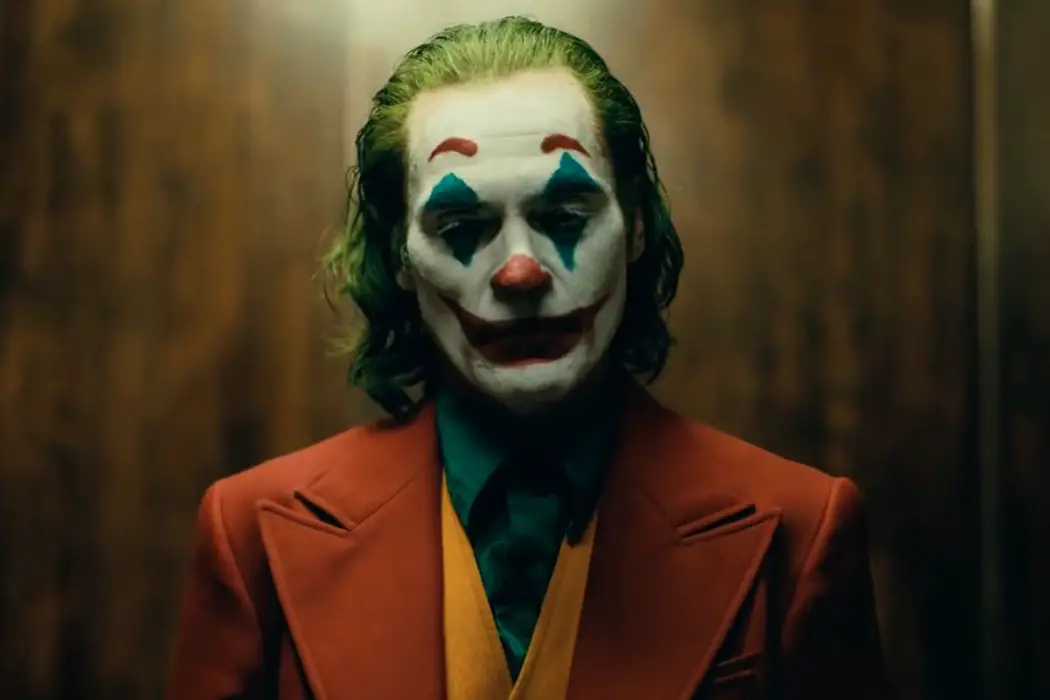
So, how about that Joker trailer? After months of wondering what on Earth this is, we finally got a decent look at the movie that went from dreaded cash grab to genuine curiosity. And it looks… not all bad? The solid ensemble is on full display and Joaquin Phoenix looks very much the part as the Clown Prince of Crime. If nothing else, it’ll surely be interesting to see what director Todd Phillips has come up with and what bearing this will have on other “Elseworlds” superhero movies in the pipeline.
But one thing people were quick to point out was how much the film is wearing its influences on its sleeve, with all manner of comparisons being drawn to films that may just give us some insight into how Joker will turn out. So what are the movie’s biggest inspirations, and how might they inform the final film? Well, let’s start with the big one.
The King of Comedy
From the beginning, we’ve known that Martin Scorsese‘s influence on Joker would be significant. His name was all over the initial announcement, from his rumored involvement to the script drawing inspiration from some of his most beloved films. Chief among them was The King of Comedy, Scorsese‘s vastly underappreciated film about Rupert Pupkin, a failing comedian who’ll go to great lengths to satisfy his obsession over a late night TV host. The link between these two films grew even stronger when Robert De Niro, star of The King of Comedy, was announced to have a role in Joker, as a late night host, no less.

The 1982 film’s influence can definitely be felt in this first trailer, which highlights Phoenix‘s Arthur Fleck taking an interest in comedy and his “purpose to bring laughter and joy to the world” passed on from his mother. And of course, we see De Niro‘s Murray Franklin in action, in addition to what looks like Arthur/Joker crashing the set, much like The King of Comedy‘s Rupert Pupkin did all those years ago. Will Arthur’s path to darkness be brought on by a similar desire for fame and recognition? That certainly looks like a possibility.
The Dark Knight
Christopher Nolan‘s juggernaut Batman sequel not only changed the landscape of superhero movies forever, but it also redefined the character of the Joker for an entire generation. So much so that every version since has come under intense scrutiny, with an eye on how much each new actor is following in Heath Ledger‘s footsteps, both on and off screen. And so, of course, the first reactions to Phoenix‘s Joker were largely concerned with the similarities to The Dark Knight. Which, to be fair, weren’t entirely inaccurate.
The two versions of the character certainly share some DNA, from the scrappy, DIY aesthetic (both have a fondness for green hair dye and garish suits) to the creepy, clown mask-donning henchmen. But what about on a story level? Well, Ledger‘s anarchist take could well seep into this movie—we see Arthur’s masked followers clash with the police and hear about them causing problems all over the city, perhaps a natural extension of the chaos The Dark Knight‘s Joker spoke of. Although far from the relentless pursuit of Batman’s secret identity, the spirit of that version is very much present towards the end of this trailer, when Arthur goes full clown.
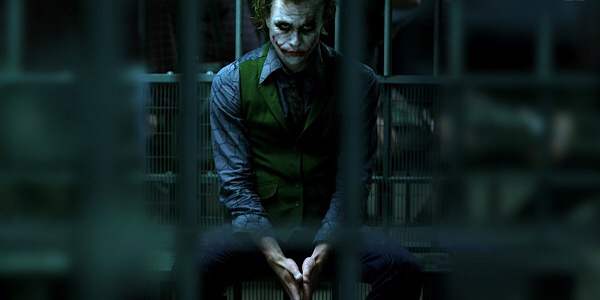
While it’s near impossible for any future Joker to get out of the shadow of Ledger‘s Oscar-winning performance, the big difference here will be seeing his downfall first hand. Gone is the eerily ambiguous backstory—this time, we’re set to see how one bad day can change someone forever. Which leads us to…
The Killing Joke
Yes, the comic, not the misguided animated adaptation. Alan Moore‘s The Killing Joke, as I’m sure you don’t need me to tell you, is the tale of how one bad day can change a man forever. How he can be kicked beyond his breaking point, pushing him into a life of crime. But there’s a twist. “If I’m going to have a past, I prefer it to be multiple choice!” the Joker tells Batman, admitting that he either can’t remember or doesn’t even care how he ended up this way. The point being that anyone who sees the world for what it really is ought to be as crazy as he is.
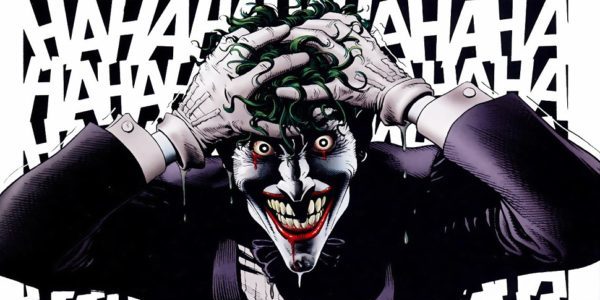
And it’s easy to see parallels in this new interpretation. While looking like a more literal interpretation of this idea, we see Arthur frequently beaten down, pushed to his limits. Phoenix‘s voiceover clues us into how his worldview has changed—”I used to think that my life was a tragedy, but now I realize it’s a comedy,” he says, observing how the insanity of the world around him has left him with no other choice. While it’s a different route to getting to there than The Killing Joke, the ethos of Moore‘s book seems firmly intact here. Although, with no moral center to disprove Joker’s “one bad day” theory, the role that Commissioner Gordon fulfilled in the comic, it’ll be intriguing to see what the ultimate message of the film ends up being.
Taxi Driver
If you thought the Scorsese allusions were going to end with The King of Comedy, think again. This is the director of War Dogs (we’ll get to that) we’re talking about here. In addition to probing the depths of celebrity obsession through the lens of comedy, Phillips also looks set to borrow a thing or two from another Scorsese/De Niro joint—Taxi Driver.
Stop me if you’ve heard this one before. Arthur Fleck is a loner who grows increasingly dismayed with the world around him. With each passing day, he grows more detached from society and becomes convinced that violent action is the only way to shake people out of their complacency. Sound familiar? If Joker is to set the tone for DC’s future “Elseworlds” projects, they could surely do a lot worse than Rupert Pupkin by way of Travis Bickle. And if that wasn’t enough, even Phillips‘ run-down Gotham strongly evokes the grungy, lived-in New York conjured up by Scorsese and screenwriter Paul Schrader, with garbage bags piling up outside a diner and loose trash covering the entrance to the Arkham State Hospital.
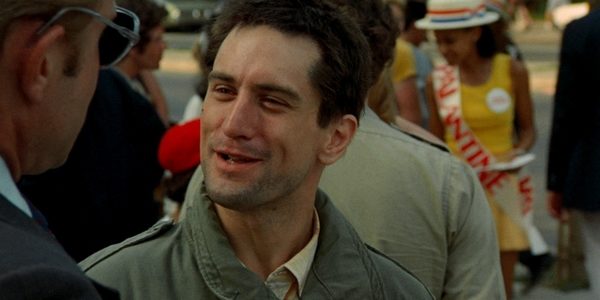
Now considering the influence of Taxi Driver here, we’d be remiss to not discuss two recent films that reinterpret elements of the 1976 classic in vastly different ways, starting with…
First Reformed
Stop me if you’ve heard this one before. Reverend Ernst Toller is a loner who grows increasingly dismayed with the world around him. With each passing day, he grows more detached from society and becomes convinced that violent action is the only way to shake people out of their complacency. First Reformed, Paul Schrader‘s latest film, makes for a fascinating companion piece with Taxi Driver, one that takes the core concept and turns it on its head entirely. Toller’s journey is almost a direct mirror to Bickle’s, although instead of a directionless young man in search of an outlet for his anger, he’s a Reverend who, in the face of his own mortality, is made to reconcile his responsibilities in the church and how they relate to the imminent concerns of climate change.
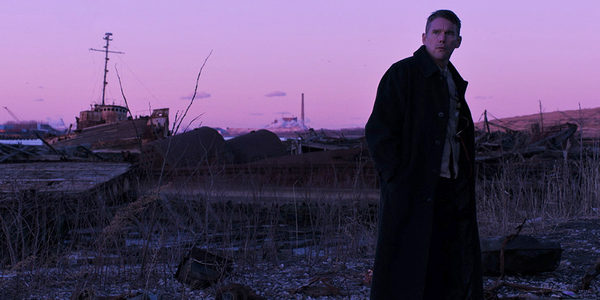
While it’s difficult to imagine Joker taking too many cues from First Reformed—the muted approach and formal visual style, for example, are nowhere to be seen in this trailer—the two films do highlight how elements of a film can be adapted and shown in an entirely different light. One example being a filmmaker looking back at his own work, using it to address one of the most prominent issues facing our species, and another spinning it to tell a comic book origin story. And that’s not the only recent film to reckon with Taxi Driver‘s legacy…
You Were Never Really Here
Lynne Ramsay‘s astonishing, long-awaited follow-up to We Need To Talk About Kevin has a fair bit in common with the Scorsese classic. From the violent loner, Joe, who does everything in his power to protect a young girl, to a hypnotic visual style that effortlessly blends with its masterful score. And when the Joker trailer dropped last week, Film Twitter was quick to point out how much it owed to You Were Never Really Here, which even shares a lead actor in Phoenix. So how much of Joker can we attribute to that film?
Well, rather a lot actually. Ramsey‘s stylish neo-noir defined its characters by their actions—a short burst of explosive violence said more about Joe than any dialogue—and few directors are as adept at capturing the ugly nature of violence. In Joker we see Arthur getting a sign across the face, beaten on the subway, and sent flying through the air by a car. He expresses himself through dance and stand-up comedy, and later by expanding upon his clown makeup in a way that better represents his fractured state of mind. He forces himself to smile in the mirror, later doing the same to a child, still trying to make the world laugh.
That’s not to say Joker closely resembles the poetic look and harsh depiction of violence, but it’s clear Phillips and co. were paying attention when You Were Never Really Here did the rounds at festivals. The trailer even showcases Arthur’s relationship with his mother, which appears to be one of his last tethers to a sense of normalcy, much like Joe’s mother was to him.

And finally, we couldn’t go without mentioning Phillips‘ own Scorsese pastiche…
War Dogs
If Joker is Phillips‘ King of Comedy, War Dogs was his Wolf of Wall Street. So many of Scorsese‘s tricks are borrowed here—from the freeze-frame-while-the-protagonist-explains-everything to the increasingly on the nose needle drops. The film even features a wild card performance from Jonah Hill, but thankfully stops short of having Miles Teller talking into camera. You do unfortunately get the feeling that Phillips doesn’t quite know what to do with all these parts, and War Dogs often plays like any number of knock-offs that followed in the wake of Goodfellas.
Scorsese‘s mastery of tone and razor-sharp vision of his characters are nowhere to be seen here, which does throw doubt on how successful Joker will be at channeling its various influences. Whether this ends up as an equally diluted take on a classic remains to be seen, but this being his second attempt does bring hope that certain lessons have been learned. That it’s not enough to simply emulate the surface level elements of your favorite films and hope for the same results. And all this being in service of a supervillain origin story does sound like an enticing proposition, while all evidence so far suggests a vast improvement on the shabby imitation of War Dogs.
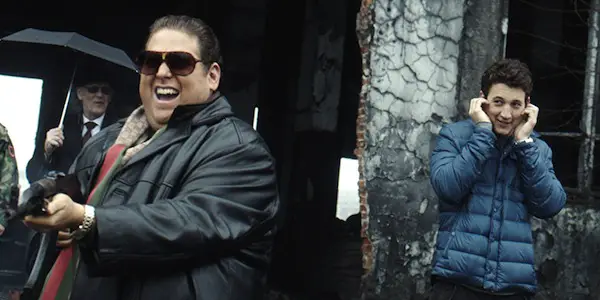
Of course, it’s impossible to know just yet how all these disparate inspirations will come together, whether it’ll amount to a Joker story that finally steps out from Ledger‘s very large shadow or little more than the sum of its parts. For now, though, this increasingly strange and intriguing film has plenty of promise, and if it can successfully channel the likes of Scorsese, Alan Moore, and Lynne Ramsey, we could be in for something very unique indeed. And if not, the beauty of these standalone stories is that we can forget all about it and start waiting on the next one.
But what are you looking forward to seeing in Joker? And what influences and inspirations have we missed here?
Does content like this matter to you?
Become a Member and support film journalism. Unlock access to all of Film Inquiry`s great articles. Join a community of like-minded readers who are passionate about cinema - get access to our private members Network, give back to independent filmmakers, and more.













